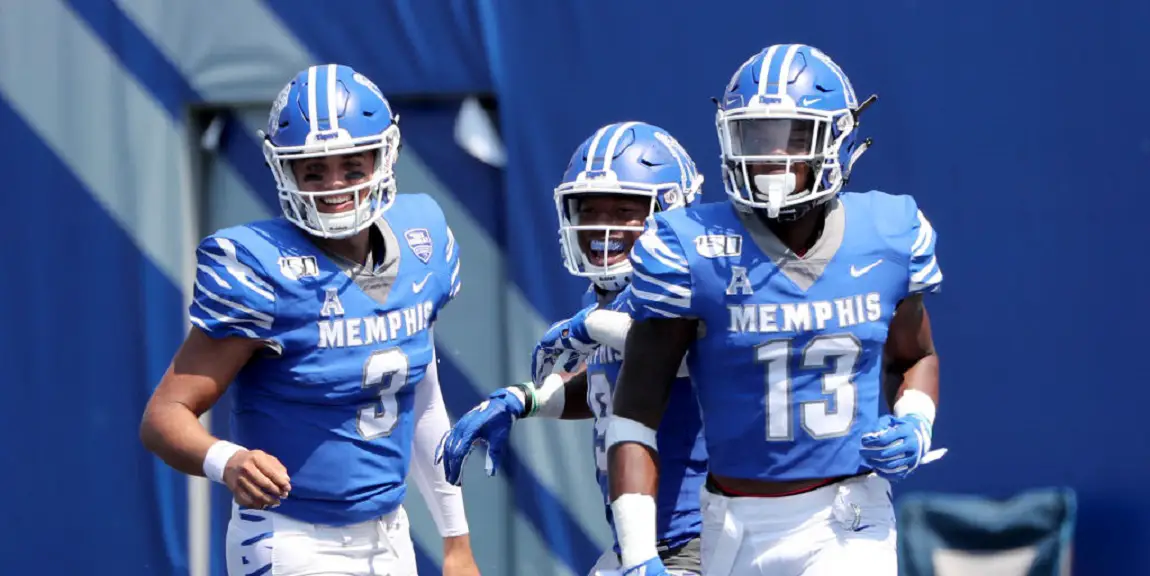“All we are saying, is give us a chance.”
In 2025, the current agreement that governs the College Football Playoff (CFP) comes to a close. The final CFP National Championship under the existing format will be played in January 2026. Concurrent with the end of the Playoff, the lucrative ESPN Playoff media rights agreement also expires.
Thereafter, the majority of football prognosticators, the “experts” and fans alike, predict a new playoff agreement under which the field will double from four to eight teams.
Most believe that the new field would most likely to be made up of the five respective champions from the ACC, B1G, B12, Pac-12 and SEC conferences (the P5), the best team from the AAC, CUSA, MAC, Mountain West and Sunbelt conferences (the G5) and two at-large teams selected by a playoff committee. The committee will be responsible for choosing the G5 representative and the two at-large teams and for seeding the field.
Okay, with the above “legalese” gratefully out of the way, what are the prospects of the playoff field doubling in size come the 2026 season and, should this occur, what will it mean for the Pac-12 Conference and, in particular, the Oregon Ducks?
Issues with an Eight-Team Field
As Mel Brooks — sorry, I mean Lee Corso — likes to say, “Not so fast my friends!” There be dragons out there.
First, will the august leaders of the P5 and G5 universities, along with the leader of the Conference of Notre Dame, agree to a format that would result in the championship game being the 16th game for the two contestants?
How does expanding the field and extending the season fit with the concept of “the student-athlete“?
The Student Athlete: Those fine young men who are students first, who show up to play football as an after-school sport. It is unfortunate that on a number of occasions, some of these lads are seduced into playing professional (ugh!) football. This is the rubric, straight out of the 19th century.
Secondly, where would a first-round playoff game fit in the calendar? If not played before New Year’s Day or on the Saturday before New Year’s, the championship game would be pushed back to late January.
I see no way that the lucrative 12th regular season game, in order to accommodate an eight-team field, would be cancelled by the money-conscious powers that be. Ditto for the conference championship games. And with the focus on player safety, the “off week” is not going away.
Start the season before Labor Day? A possibility. But this would mean a shorter off season for the student-athletes and games being played before the student body of many schools is on-campus.
Third, with many people pulling the cable TV plug, will ESPN or another media company (or companies) be in a position to dramatically increase the current Playoff payday?
Prior to 2026, ESPN will have new professional sports broadcast deals to negotiate, an SEC broadcast partner agreement to negotiate and new deals to negotiate with the B1G, PAC -12 and G5 conferences. And ESPN will continue to carry the operating costs of the ACC, Longhorn and SEC networks, along with the cost of the Big 12’s first tier media rights.
That’s a whole lot of bread, even in the ESPN overlord’s Magic Kingdom.
The majority of college athletic departments are leaking red ink. If the Playoff money is not going to significantly increase, why expand the Playoff field or even continue with a CFP?
Fourth, many G5 and even P5 games today could easily be played in high school stadiums. Is our society moving toward greater or lesser interest in college football?
An Expanded Playoff Last Year?
Notwithstanding the above questions, let us assume that the powers that be have decided to expand the Playoff field using the model discussed above. What would the field have looked like in 2019?
For first-round games, I am assuming that the Playoff Committee will award the four top seeds, and the fans of these teams, with a home game. If you want better out-of-conference games across the board, strength of schedule for seeding purposes has to matter. Playing for a first-round home game will hopefully take the burden off of teams who have two losses against great opponents, as opposed to today’s simple W and L arithmetic. Like in the NCAA basketball tournament, the quality of competition has to count, as do Ws and Ls.
Based on the ultimate 2019 Playoff Committee rankings, below is what would have been the eight playoff teams and their seeds for last season.
No. 8 – Memphis (G5) at No. 1 – LSU (SEC)
No. 5 – Georgia (AL) at No. 4 Oklahoma (B12)
No. 7 – Baylor (AL) at No. 2 Ohio State (B1G)
No. 6 – Oregon (Pac-12) at No. 3 Clemson (ACC)
This would be good for the Pac-12 and the Ducks. We would have had a team in the Playoff — hurrah! The Pac-12 would benefit from the prestige and the money (remember that the 11 other Pac-12 teams are getting the same Playoff piece of the pie as Oregon) and the Ducks would reap the reward of additional national exposure to fans and recruits.
But, to review the bidding, in the BCS days, you had to win one game to be the champ. Under the current Playoff system, you have to win two games. Under the hypothetical expanded Playoff system, you will have to win three games.
So, in 2019, let us assume an upset of major proportions. The Ducks trip to Clemson and leave town with the win. HUZZAH! Most likely up next for Oregon, as was the case in 2014: Ohio State.
But this Ducks’ team is on an all-time roll. For the first time in Oregon history, the Ducks conquer the Bucks in the Fiesta Bowl. Oregon, Mario Cristobal and the team from Eugene are the talk of the college football world.
The reward for these two wins? Oregon gets to tee it up against LSU in New Orleans.
So, Ducks expansion proponents, should we be careful what we wish for?
Jon Joseph
Georgetown, Texas
Top Photo From Twitter
 Andrew Mueller, the FishDuck.com Volunteer Editor for this article, works in digital marketing in Chicago, Illinois.
Andrew Mueller, the FishDuck.com Volunteer Editor for this article, works in digital marketing in Chicago, Illinois.

Jon Joseph grew up in Boston, Massachusetts but has been blessed to have lived long enough in the west to have exorcised all east coast bias. He played football in college and has passionately followed the game for seven decades. A retired corporate attorney Jon has lectured across the country and published numerous articles on banking and gaming law. Now a resident of Aiken South Carolina, Jon follows college football across the nation with a focus on the Conference of Champions and the Ducks.




